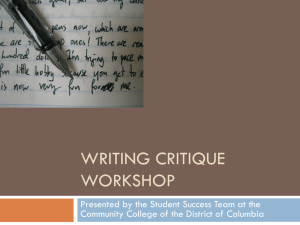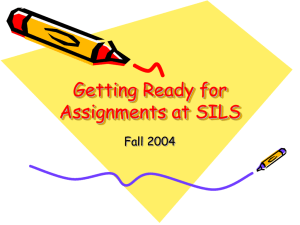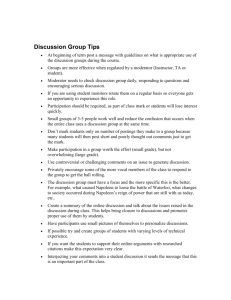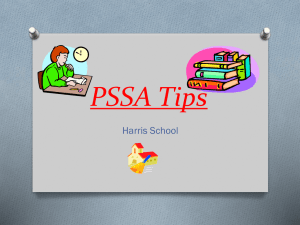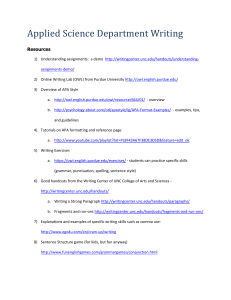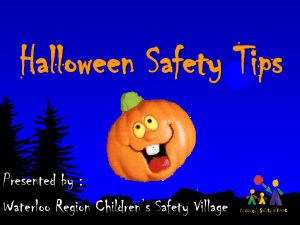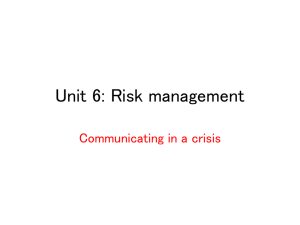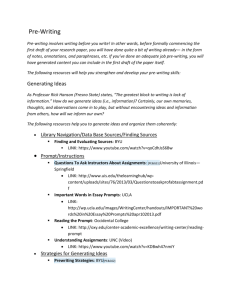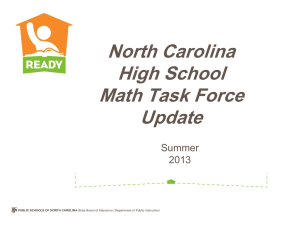Writing a Book Review presentation
advertisement
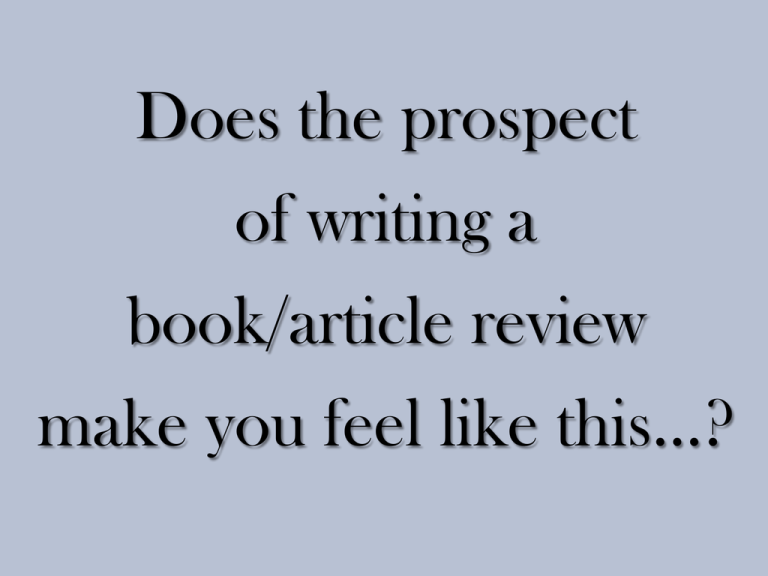
Does the prospect of writing a book/article review make you feel like this…? Book/Article Review • Book/Article reviews are usually one of the first assignments given in the course of the semester. • A book/article review looks at the quality, meaning, and significance of a work of literature. It is a reaction paper – focusing on purpose, content, and authority – in which strengths and weaknesses of the material are analyzed. • It should examine what the author has tried to do, evaluate how well the author has succeeded, and presents evidence to support this evaluation. Book/Article Review • The first step is to READ the book/article. • Allow yourself enough TIME to be able to thoroughly read and evaluate the book/article. • Read ACTIVELY and CRITICALLY! – Engage with the text – Highlight and Underline passages – Write in the margins – Make predictions (and test them) – Ask questions (and answer them) Book/Article Review • Typical book/article reviews consist of two parts: – Summary & Analysis • Occasionally a professor will want additional info. – Bibliographical Material – Personal Opinion – Career/Ministry Application • There is no standard, discipline-specific way to write a book/article review. – Often a professor will provide guidelines and format. – Otherwise, you may create your own outline. Book/Article Review Sample Outline I. Introduction II. Summary III.Analysis A. Strengths B. Weaknesses IV.Conclusion Book/Article Review • Summary – A summary is a brief, concisely written synopsis of the book/article. – A summary restates the author’s main point, purpose, intent, and supporting details in your own words. – Summaries are written to help you gain a better grasp of the original, as well as show that you have read and understand the assigned material. Book/Article Review • Summary Tips – Summaries should be no longer than a quarter of your paper. • Usually a page or a two of summary is sufficient. • The majority of your paper should be devoted to the analysis. – Avoid a chapter-by-chapter summary. – Avoid quoting heavily from the source. • The summary should be in your own words. Book/Article Review • Analysis – An analysis is a detailed evaluation of the thesis (arguments) presented by the author. – Relate the strengths and weaknesses of the book/article. • What is good and what is bad? • What did the author do well? Not well? • This does not communicate if you liked it or not. Book/Article Review • Analysis Tips – You do not necessarily need to work chronologically through the book/article as you discuss it. • You can organize your paragraphs more usefully by themes, methods, or other elements of the book. – Keep comparisons to other books/articles brief so that the book under review remains in the spotlight. – Avoid excessive quotations or block quotes. Book/Article Review • Analysis Tips – Review the book in front of you, not the book you wish the author had written. • Do not criticize the book for not being something it was never intended to be. – Present a balanced analysis. • Avoid voicing strong agreement or disagreement. • Harsh judgments are difficult to prove and can give readers the sense that you were unfair in your assessment. Book/Article Review • Analysis Tips – Don’t be afraid to disagree with the author. – Cite specific examples to back up your assertions. – A good analysis requires time and critical thinking. • You must look “below the surface” and focus on the deeper issues present in the book/article. • As you read, constantly evaluate what you have read and make notes of your questions and thoughts. Book/Article Review • Analysis Questions: – Who is the audience? Did the author communicate effectively to that audience? – What sources were used? Does the author use many quality academic sources to support what was written? – What are the authors presuppositions/preconceived notions? Does the author assume his/her readers to have a certain background or information? Book/Article Review • Analysis Questions: – Does the author have the necessary expertise to write the book/article? – How does this book/article relate to other sources on the same topic? – Does the author define and use appropriate, academic terminology? Book/Article Review • Analysis Questions: – Does the author present a clear thesis (argument)? What is the purpose of the book/article? – Does the author contribute anything new to the field? – Does the author exhibit any bias? Does the author have an inclusive worldview/writing style? – Are there errors in the author’s logic? Sample Book Review N. T. Wright Paul: In Fresh Perspective Minneapolis, MN: Fortress Press © 2006 Sample Book Review Sandra D. Wilson, Ph. D. Hurt People Hurt People Grand Rapids, MI: Discovery House Publishers © 2001 Sample Article Review Mark Driscoll Answers to Common Questions about Creation TheResurgence.com © 2006 Sample Article Review S. J. Bujarski, et al. Marijuana use among traumatic event-exposed adolescents: Posttraumatic stress symptom frequency predicts coping motivations for use Addictive Behaviors © 2012 REFERENCES – Belcher, Wendy, “Writing the Academic Book Review.” http://www.chicano.ucla.edu/press/siteart/jli_bookreviewguidelines.pdf – Lee, Alexander D., Bart N. Green, Claire D. Johnson, and Julie Nyquist, “How to Write a Scholarly Book Review for Publication in a Peer-Reviewed Jounal.” The Journal of Chiropractic Education. http://www.journalchiroed.com/2010Spring/JCESpring2010Lee.pdf – Purdue OWL, “Writing a Book Review.” http://owl.english.purdue.edu/owl/resource/704/1/ – The Writing Center at UNC-Chapel Hill, “Book Reviews.” http://writingcenter.unc.edu/resources/handouts-demos/specific-writing-assignments/book-reviews – The University of New South Wales, Learning Centre, “Writing a Critical Review.” http://www.lc.unsw.edu.au/onlib/critrev.html – Columbia University Writing Center, http://www.columbia.edu/cu/ssw/write/handouts/summary.html – Los Angeles Valley College Library, http://www.lavc.edu/library/bookreview.htm – University of North Carolina at Chapel Hill Writing Center, http://www.unc.edu/depts/wcweb/handouts/review.html http://www.unc.edu/depts/wcweb/handouts/fallacies.html
